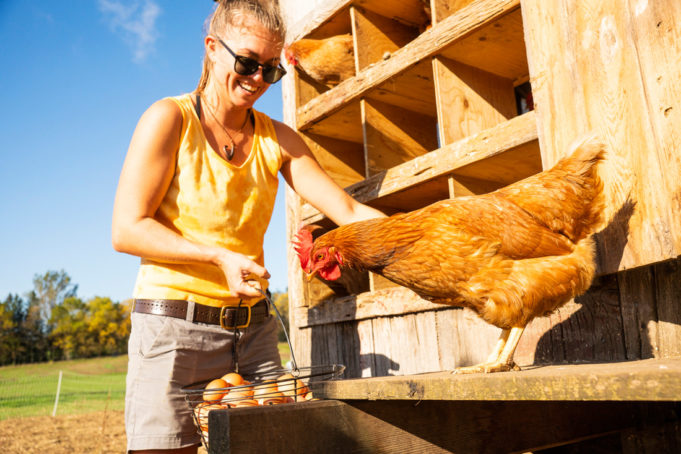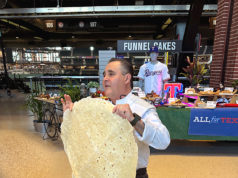To shed some light on why egg prices have become a problem, read the article from Texas A&M AgriLife also in this edition of Zest 2023. Meanwhile, local farmers and purveyors of eggs have their own thoughts.
On a recent visit to Cowtown Farmers Market (8901 Clifford St, White Settlement), I chatted with some vendors who usually carry eggs to get a fresh perspective. Along with the outbreaks of “bird flu” in recent years wreaking havoc on flocks around the country, feed prices have also increased, according to one vendor I met.
According to another vendor Larry Goodson of First Earth Farms (541 Holt St, Bluff Dale, 817-458-1099), the consumer holds the key. “If they want food security, they need to shop local and build that demand.”.
“The factory farms raise their birds in environments that are subject to outbreaks and major losses. Your local producers tend to raise their animals in a more free-range outdoor setting that accesses better forage and promotes a healthier, more resistant bird that lays more nutritious eggs,” says Goodson.
He believes that when the consumer shops locally, it builds a stronger local food economy, and both the land and community grow healthier.
Along with First Earth Farms, other vendors at Cowtown Farmers Market that sell eggs include Ash Creek Farms and Hollow Trace Market Farm. (First Earth and Ash Creek are also vendors at Clearfork Farmers Market as well.)
Green’s Produce & Plants (3001 W Arkansas Ln, Arlington, 817-274-2435) is another great local source for eggs, seasonal fruits and vegetables, gift items, and everything you need for the garden.
If a trip to your local farmers market isn’t on the schedule right now, consider some grocery stores that have ethically sourced eggs, meats, and seafood. If you’re already paying a little more, you might as well do right by the planet and the animals that live on it at the same time. Central Market, Natural Grocers, Roy Pope, Sprouts, and Whole Foods all come to mind.
Most regular, neighborhood grocery stores — even the big chains — have eggs from free-range chickens on the shelves, but pasture-raised is better for the hens.
At Central Market, for example, the minimum standards that qualify a vendor to claim their eggs are “pasture-raised” includes making sure that each bird has a minimum of 108 sqft of outdoor space each and that the birds are raised humanely by Humane Farm Animal Care Program standards.
To meet the HFACP standards, the animals must get a nutritious diet without antibiotics, shelter, resting areas, and sufficient space and ability to engage in natural behaviors.
With wildly varying definitions and regulations at play, you’ll just need to do a little research to know exactly what you’re really getting.












